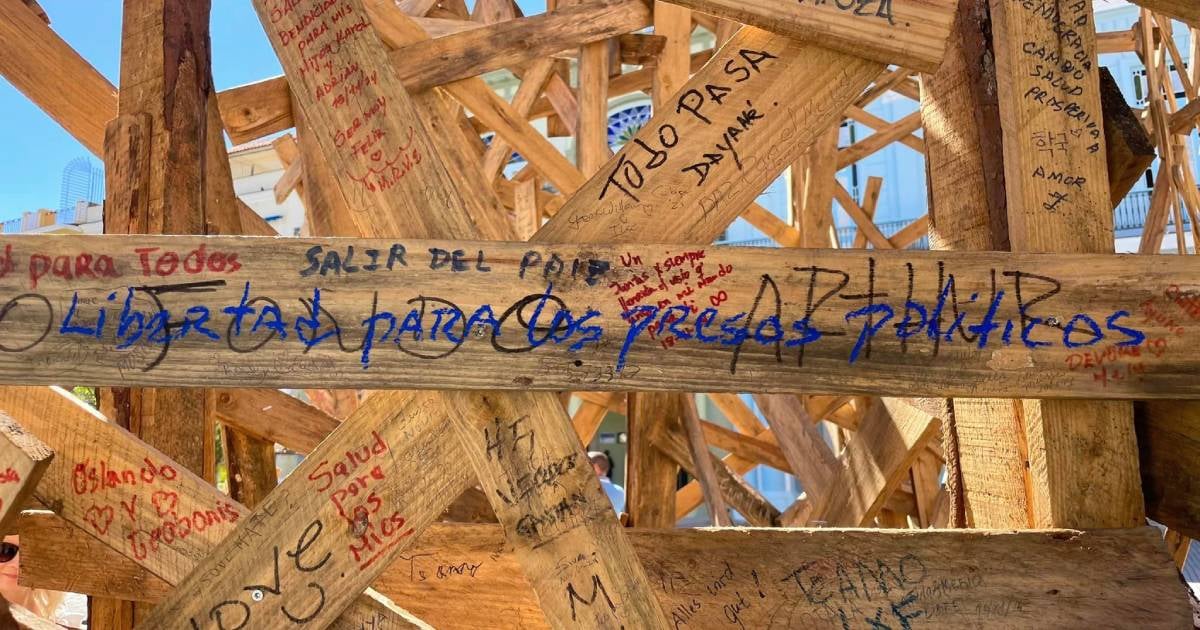During the 15th Havana Biennial, Cuban graffiti artist Yulier Rodríguez utilized the event as a platform to demand the release of political prisoners on the island. His intervention took place on the artwork titled "Wooden Cloud - The Architecture of Desires" by German sculptor Martin Steinert, where Rodríguez inscribed four poignant messages in blue across various sections of the wooden boards.
Steinert's piece, prominently displayed in Old Havana's iconic Plaza Vieja, is a monumental installation encouraging reflection on human aspirations. The piece invites Cubans to express their desires on its wooden panels, which Rodríguez used as a canvas to write "Freedom for Political Prisoners," "Freedom for José Daniel Ferrer," "Freedom for Luis Manuel Otero Alcántara," and "Freedom for Maykel Osorbo."
Art as a Medium of Protest
Yulier Rodríguez, renowned for his expressive graffiti that critiques urban decay and power structures, underscores the symbolic power of art as a medium for protest. His actions bring the issue of human rights into an artistic space that is typically regulated by the regime. Previously, Steinert described his "Wooden Cloud" as an invitation to curiosity and dialogue, a notion that Rodríguez expanded with his impactful messages. In his social media posts, Rodríguez referred to his intervention as "my contribution to the Biennial."
Rodríguez's protest adds to the growing chorus of voices both within and outside Cuba, demanding the release of opposition figures, activists, and those unjustly imprisoned following the protests of July 11, 2021. Cultural authorities of the Biennial and the German artist have yet to comment on the matter.
Dreams and Aspirations of the Cuban People
Elsewhere on Steinert's installation, one can read the dreams of the Cuban people inscribed on the wooden boards: "Health and Freedom," "To End the Biggest Farce in History," "Leave the Country," "Travel," and repeated calls for "Freedom."
